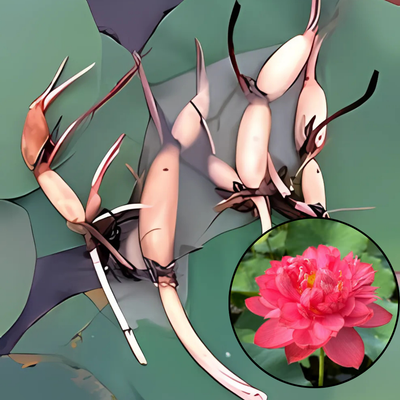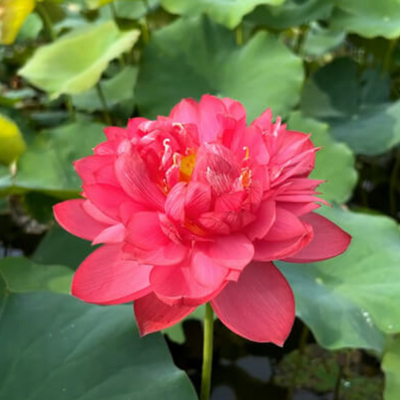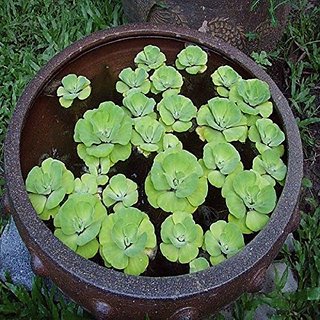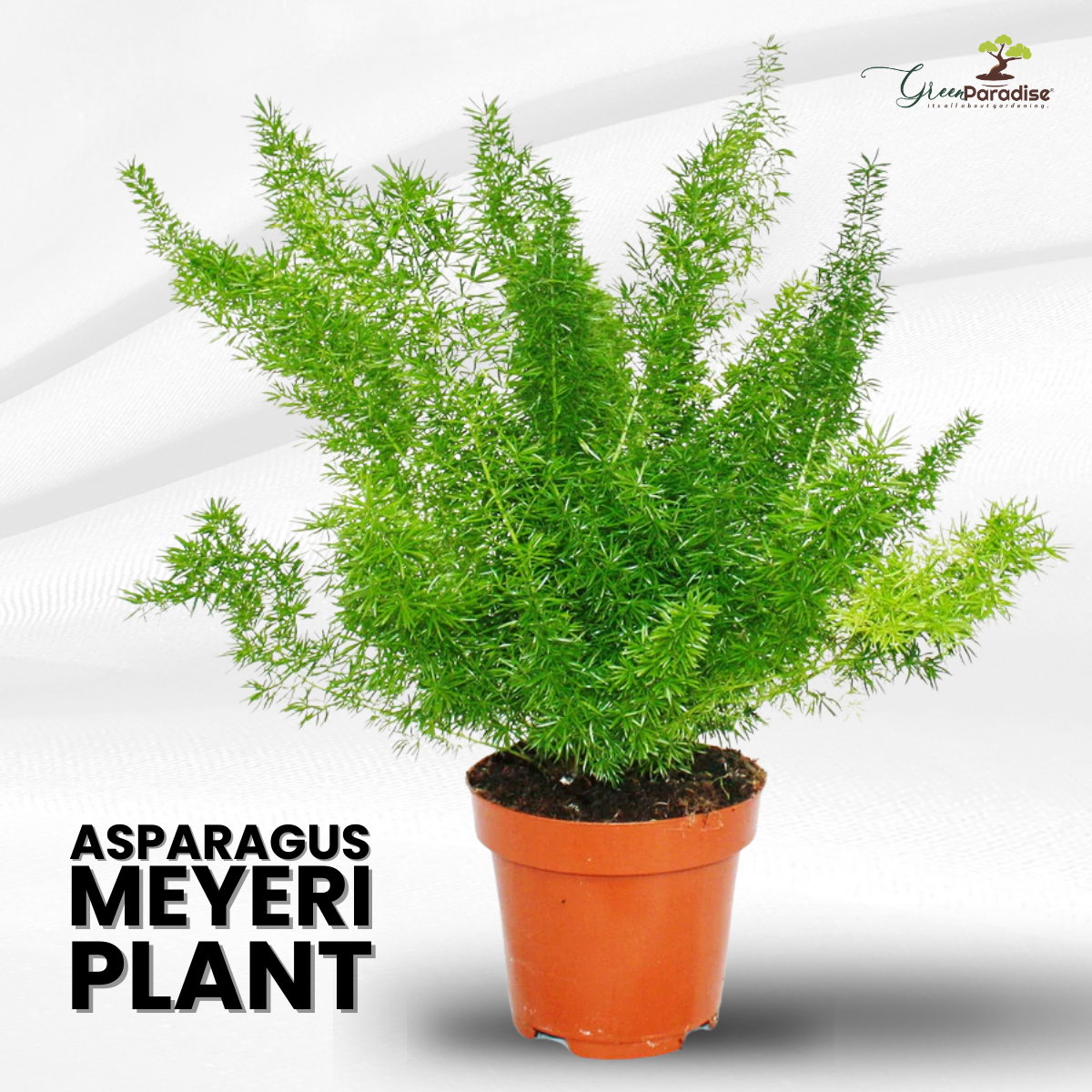
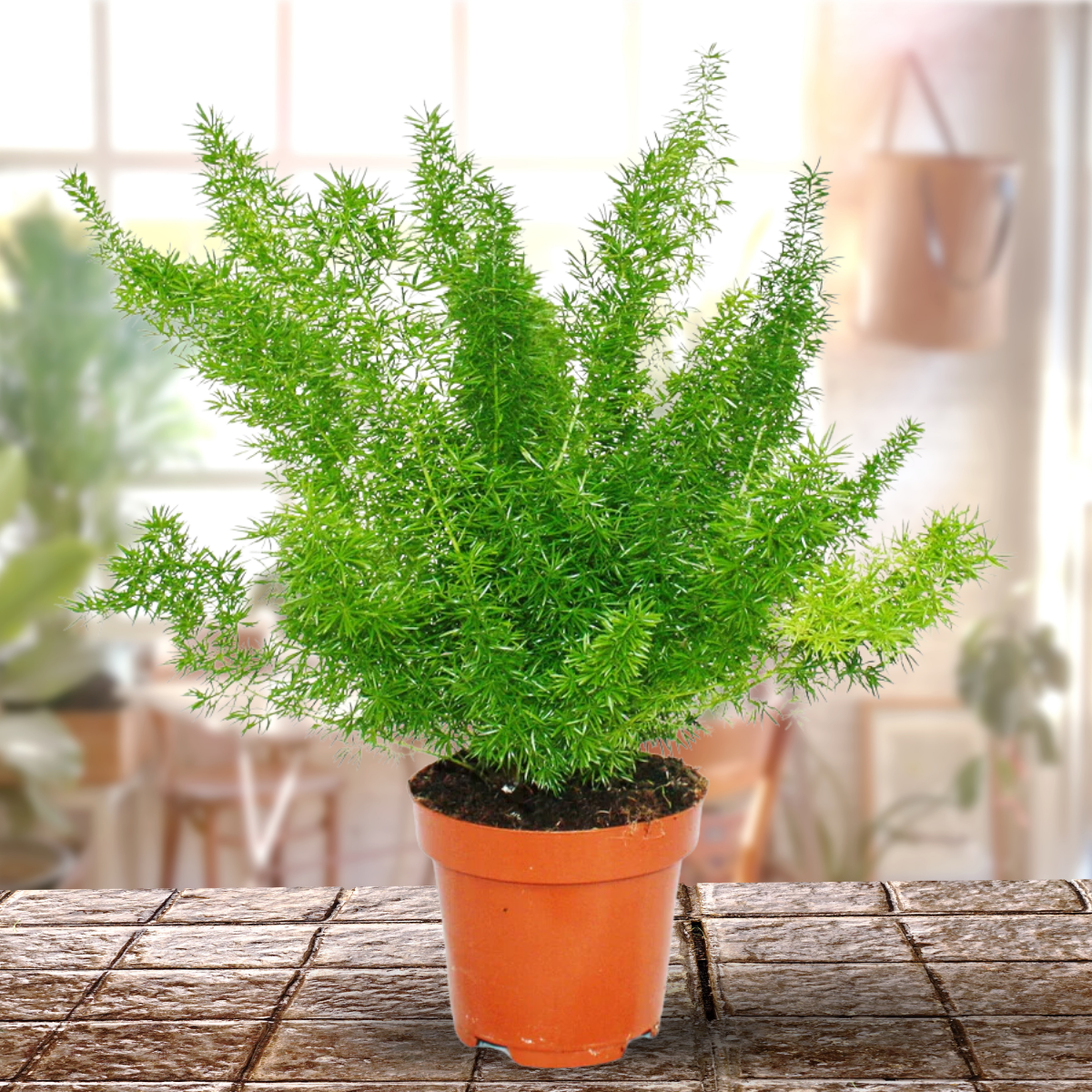
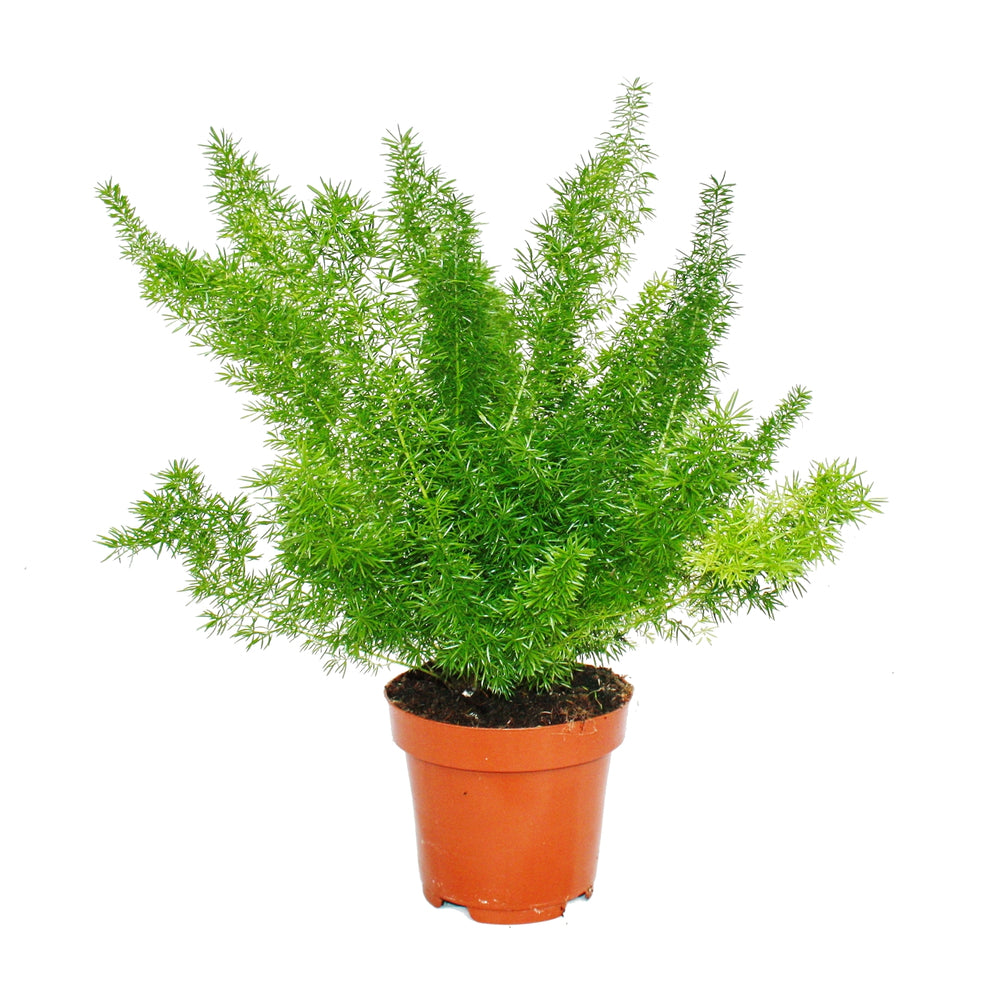
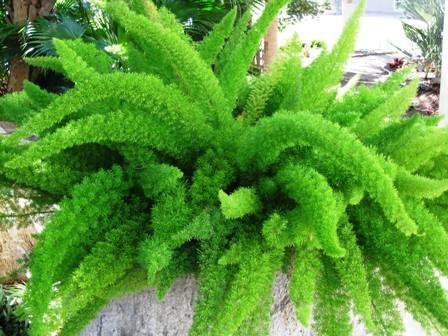
Asparagus Meyeri Foxtail Fern Live Indoor Outdoor Plant With Pot
Guaranteed Safe Checkout
Green Paradise Offers Asparagus Meyeri
Foxtail Fern Plant
About Asparagus Meyeri Plant
Asparagus meyeri, often known as the Foxtail Fern or Asparagus Foxtail Fern, is a popular ornamental plant in the Asparagus (Asparagaceae) family. The plant is native to South Africa and is widely cultivated for its attractive and feathery foliage.
Here are some key features and characteristics of Asparagus meyeri:
Appearance:
-
The Foxtail Fern has long, upright, and densely packed stems covered with soft, needle-like, bright green leaves.
-
The leaves are fluffy and resemble the tail of a fox, hence the common name "Foxtail Fern."
-
The foliage provides a unique and appealing texture to the plant.
Growth habit:
-
This asparagus plant is a clumping perennial, meaning it forms multiple stems emerging from the base, creating a dense and bushy appearance.
-
The stems can grow up to 2 to 3 feet (60 to 90 cm) tall and can spread out about 3 feet (90 cm) wide.
Hardy nature:
-
Asparagus meyeri is a hardy plant that can tolerate a range of conditions.
-
It can also be grown as a houseplant in containers, making it adaptable to various environments.
Light and temperature requirements:
-
Foxtail Ferns prefer bright, indirect light but can tolerate some shade.
-
They thrive in temperatures between 60-75°F (15-24°C) during the day and slightly cooler temperatures at night.
-
Protect them from frost or freezing temperatures, as they are not cold-hardy.
Watering needs:
-
These fern-like plants prefer consistently moist soil.
-
Water the plant regularly, allowing the topsoil to dry slightly between waterings.
-
The opposite is also true—excessive watering can result in root rot.
Soil requirements:
-
Well-draining soil is essential for the Foxtail Fern.
-
A mixture of regular potting soil and peat moss or perlite works well.
-
It is also beneficial to add organic matter to the soil to improve its fertility and drainage.
Maintenance:
-
Asparagus meyeri is a low-maintenance plant.
-
Regularly remove any dead or yellowing foliage to keep the plant looking tidy.
-
It doesn't require much pruning, but you can trim the stems to maintain the desired shape and size.
Propagation:
-
The Foxtail Fern can be propagated through division. As the plant matures, it develops a clumping habit with multiple stems emerging from the base.
-
To propagate, carefully divide the clumps and repot them into separate containers or transplant them to different areas.
Uses:
-
Asparagus meyeri is primarily grown as an ornamental plant.
-
Its unique foliage makes it a popular choice for gardens, landscaping, and as a container plant.
-
It can be grown as a standalone specimen or as part of mixed plantings.
Potential concerns:
-
While the Foxtail Fern is generally considered non-toxic, it is always advisable to keep it away from pets and children, as some individuals may have sensitivities or allergies to certain plants.
Overall, the Asparagus meyeri Foxtail Fern is a visually appealing and relatively easy-to-grow plant that adds an exotic touch to gardens and indoor spaces with its distinctive, fern-like foliage.
How To Grow Asparagus Meyeri Foxtail Fern Plant
To grow Asparagus Meyeri, commonly known as Foxtail Fern, you can follow these steps:
Planting:
-
Choose a location that receives partial shade to full shade.
-
Foxtail Ferns prefer well-draining soil with organic matter.
-
Double the size of the plant's root ball when digging the hole.,
-
making sure it is at the same level as it was in its previous container.
-
Backfill the hole with dirt, then lightly tamp it down.
Watering:
-
Keep the soil unevenly wettish but not doused.
-
Water the plant thoroughly after planting and then water regularly, allowing the top inch of soil to dry out between watering sessions.
-
Adjust the frequency of watering depending on the weather conditions and moisture retention of the soil.
Fertilization:
-
Foxtail Ferns benefit from regular fertilization to promote healthy growth.
-
Use a balanced, slow-release fertilizer or a liquid fertilizer formulated for foliage plants.
-
For information on frequency and operation rates, refer to the manufacturer's instructions.
-
Apply the toxin during the growing season, generally from spring to fall.
Mulching:
-
Apply a layer of organic mulch around the base of the plant to help retain moisture, suppress weeds, and provide nutrients as it breaks down.
-
Mulching also helps to keep the roots cool in warmer climates.
Pruning:
-
Foxtail Ferns generally require minimal pruning.
-
Remove any dead or damaged fronds by cutting them back to the base of the plant.
-
Pruning can be done at any time of the time.
-
You can also trim the plant to maintain a desired shape or size.
Winter Care:
-
Foxtail Ferns are generally hardy in USDA hardiness zones 9 to 11.
-
If you live in a colder region, you can bring the plant indoors during winter or provide protection from frost.
-
Place it in a cool location with bright, indirect light.
-
Reduce watering during the dormant period, but do not let the soil dry out completely.
Pest and Disease Control:
-
Foxtail Ferns are relatively pest and disease-resistant.
-
However, they may occasionally be affected by mealybugs or scale insects.
-
Monitor your plants regularly and treat any infestations promptly with insecticidal soap or neem oil, following the instructions on the product label.
Remember to observe the specific conditions in your growing area and adjust your care accordingly. With proper attention to watering, fertilizing, and providing suitable conditions, your Foxtail Fern should thrive and add beauty to your garden or indoor space.



